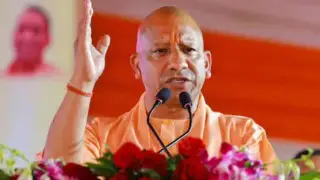
X
Renowned environmentalist and educator Sonam Wangchuk marked World Water Day in a distinctive manner this year, engaging in a climate fast to draw attention to the urgent need for action to combat the alarming rate of melting glaciers in the Himalayas. Wangchuk's dedication to environmental causes has long been recognized, and his latest endeavor underscores the gravity of the situation facing these vital water sources.He finished his 16-day hunger strike by sending one more plea to Prime Minister Narendra Modi for Ladakh's statehood and protection.
HAPPY WORLD WATER DAY!
Beginning the 17th day of my #climatefast.
Himalayan glaciars are melting away fast.
And our automated artificial glaciers in Ladakh cannot solve this problem.
But YOU CAN... #SaveLadakh #SaveHimalayas #SaveGlaciers #6thSchedule @LeoDiCaprio @350… pic.twitter.com/URPMBBTJ0S— Sonam Wangchuk (@Wangchuk66) March 22, 2024
On the occasion of World Water Day, Sonam Wangchuk embarked on a climate fast, abstaining from food and drink for a specified period. This symbolic act serves as a powerful reminder of the critical importance of water conservation and the looming threat posed by climate change to our planet's water resources.
Wangchuk's climate fast comes at a time when the Himalayan region is experiencing unprecedented glacial melt, exacerbating concerns over water scarcity and environmental degradation. The Himalayas, often referred to as the 'Water Tower of Asia,' are home to thousands of glaciers that feed major river systems, sustaining millions of people across the region.
Studies have shown that Himalayan glaciers are receding at an alarming rate, with some estimates suggesting they could disappear entirely by the end of the century if current trends persist. This rapid loss of ice not only threatens water supplies but also has far-reaching implications for agriculture, hydropower generation, and biodiversity.
The consequences of melting glaciers are already being felt by communities living in the Himalayan region. Changes in water availability and quality are posing significant challenges to agriculture and livelihoods, while the risk of glacial lake outburst floods (GLOFs) looms large, endangering lives and infrastructure downstream.
In light of these pressing concerns, Sonam Wangchuk's climate fast serves as a poignant call to action for governments, policymakers, and individuals alike. Urgent measures are needed to mitigate the impacts of climate change, safeguard water resources, and ensure the sustainability of Himalayan ecosystems for future generations.
Wangchuk advocates for the adoption of innovative, community-driven solutions rooted in indigenous knowledge to address the challenges posed by climate change. Drawing upon centuries-old traditions of water management and conservation practiced by Himalayan communities, he emphasizes the importance of local resilience in the face of global environmental threats.
As the world commemorates World Water Day, Sonam Wangchuk's unwavering commitment to environmental stewardship serves as an inspiration to millions around the globe. His climate fast symbolizes not only a personal sacrifice but also a collective determination to protect our planet's precious water resources and safeguard the fragile ecosystems of the Himalayas.
As World Water Day draws to a close, the message conveyed by Sonam Wangchuk's climate fast resonates with renewed urgency. The need for concerted action to address the challenges of climate change and glacier melt has never been more pressing. It is incumbent upon all of us to heed this call, unite in solidarity, and work towards a sustainable future where water remains a source of life and vitality for generations to come.













Copyright © 2025 Top Indian News
